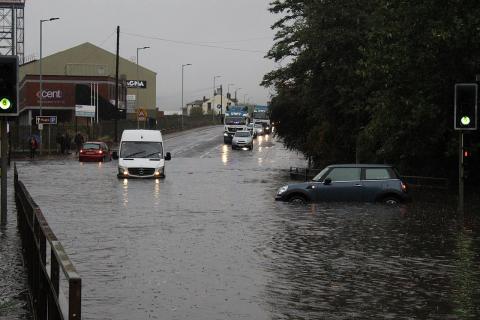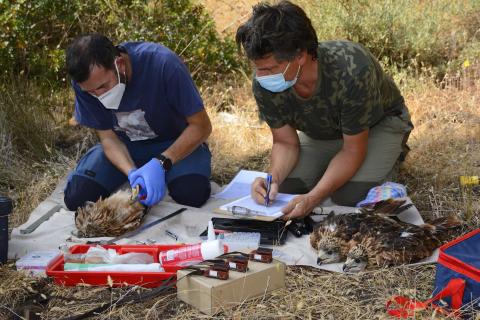Report estimates 8% loss of GDP by 2050 due to global water crisis
An international report by the Global Commission on the Economics of Water says the water crisis puts more than half of the world's food production at risk by 2050. It also claims that it threatens an average loss of 8% of GDP in countries around the world by 2050, with losses of up to 15% in the lowest income countries.

Jorge Olcina - crisis agua EN
Jorge Olcina
Professor of Regional Geographical Analysis at the University of Alicante
Various studies are considering the reduction of GDP in many countries and regions due to the impact of climate change, although I am somewhat critical of these economic projections in the current context of climate change, as they must be made with short-term models (horizon 2030 or 2040 at the most), because otherwise, neither governments nor society will act. Society becomes immunised when it sees dates such as 2050 or 2100 because it thinks that they do not go with it.
Reaffirming the problem with the current process of global warming, it is also true that projections of the effects on precipitation need to be adjusted every ten years, because it is difficult to gauge the effect of warming ocean waters on atmospheric circulation.
That said, I would argue that this is not just a water issue. Climate change implies the need for powerful investments in mitigation and adaptation to reduce its impact on the economy and society (through the loss of human lives due to extreme events).
These reports are a necessary wake-up call for governments to act now to reduce the effects of climate change and to eliminate its cause (greenhouse gas emissions). And, as we can see, neither is happening.
On water, we will see changes in river regimes and crop varieties around the world. And we will have to activate water policies based on the efficient management of demand, with a greater share of treated and desalinated water volumes in the water mix that can supply societies around the world, and of course in Spain, in order to guarantee water security.
The important message that should be given about water management in the context of climate change is that policies of continuous water supply are over, because rainfall is increasingly irregular and in some regions of the world, less. We must be more responsible in water planning and, above all, in resource management.
I will give two pieces of information from Spain that support this last idea (we are not responsible in water management):
- In Spain we do not really know what agriculture spends on irrigation, because we do not have meters at the plot level to control this expenditure.
- In Spain there are cities that lose 30-40 % of the water distributed through the urban water network.
With these two figures it is clear that projections for the future are fine (although they must be short term), but that the problem is already upon us and we are not doing anything to solve it.
Encarna Esteban - crisis del agua EN
Encarna Esteban
Full Professor of Economic Analysis at the Faculty of Social and Human Sciences of the University of Zaragoza
The report The economics of Water: Valuing the Hydrolical Cycle as a Global Common Good (GCEW Executive summary) highlights the need to achieve collective management of the water cycle. Water is one of the essential natural resources and is currently subject to a severe crisis where scarcity of this resource is the fundamental pattern. Water scarcity, together with an increased incidence of extreme natural effects such as droughts, is having a strong impact on human health, food security and economic growth, as well as strong impacts on ecosystems. The lack of global management and overexploitation of this resource has led to a further aggravation of the water crisis.
One of the main ideas of the report is the need to manage this resource in an integrated way through global governance. It is essential to treat the resource as a common good with innumerable services (positive externalities), which need to be properly valued and taken into account in water management. The GCEW identifies five key missions to achieve sustainable water governance and reduce the current water crisis:
- Mission 1: Improve water productivity to reduce impacts on water quality and quantity. Ensuring food security must be accompanied by efforts to avoid deterioration of water resources.
- Mission 2: internalising the many goods and services provided by water and its associated ecosystems in water management.
- Mission 3: enhancing the circular water economy by reusing resources and reducing inefficiencies (e.g. losses in networks).
- Mission 4: new growth patterns based increasingly on the use of renewable energies or artificial intelligence must not compromise the sustainability of this resource.
- Mission 5: improve sanitation and purification systems to ensure access to safe drinking water in all regions (avoid deaths from unsafe water).
The challenges are numerous, but the creation of a new water economy with the support of different governments and institutions is essential. The current water crisis requires global governance to address the remaining challenges.
Global Commission on the Economics of Water
- Report



